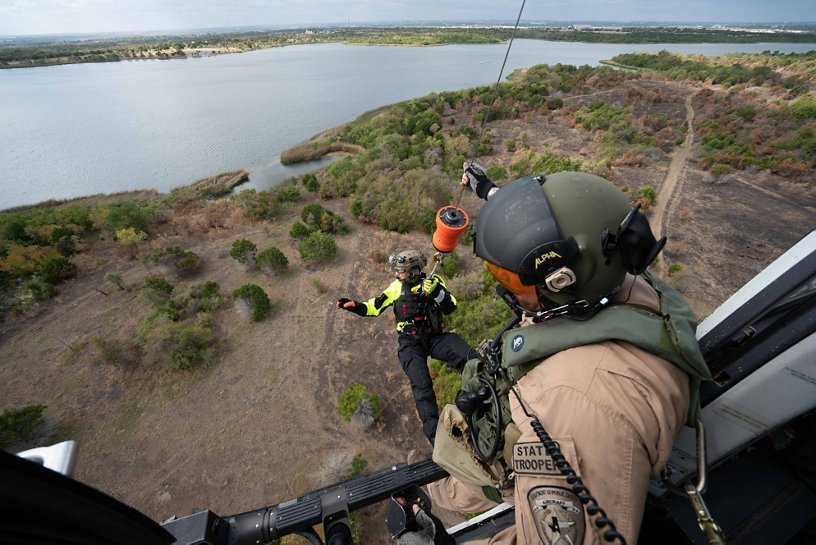Article by Belén Morant, Media: Airbus Helicopters; Jonny Carroll; DTX Media

Tim Ochsner, Chief Pilot of the Texas Department of Public Safety (DPS), explains the key to the success of the SAREX (search and rescue exercise)
When it comes to offering an adequate, effective and rapid response to natural disasters there’s no room for improvisation, particularly when a number of different agencies are involved. Tim Ochsner, Chief Pilot of the Texas Department of Public Safety (DPS), explains the key to the success of the SAREX (search and rescue exercise) conducted by more than 20 different agencies since 2015, which has now established itself as the benchmark for rescue training in the US.

How did the need arise to organise rescue training on such a large scale as SAREX?
In 2011, the state of Texas had huge problems with wildfires, and the following years we had two major floods. All the agencies equipped with aerial capability for these kinds of situations were involved: the Army with their Lakotas, our local EMS agencies, the Austin Police Department with their H125 and San Antonio Police Department with an H125 as well…
We all quickly formed a team and worked together out of necessity due to the flooding. We didn’t have time to set much up – we just did it.
After those events, we thought we needed to come up with a better plan for training, establish a communication plan and standard operating procedures. We had to establish a cooperation framework that was independent to the parties we tend to work with, because at the end of the day these things can change. That’s how the SAREX exercise came about.
Click the link for the full story, more pictures, and a video! https://www.airbus.com/newsroom/stories/sarex.html


